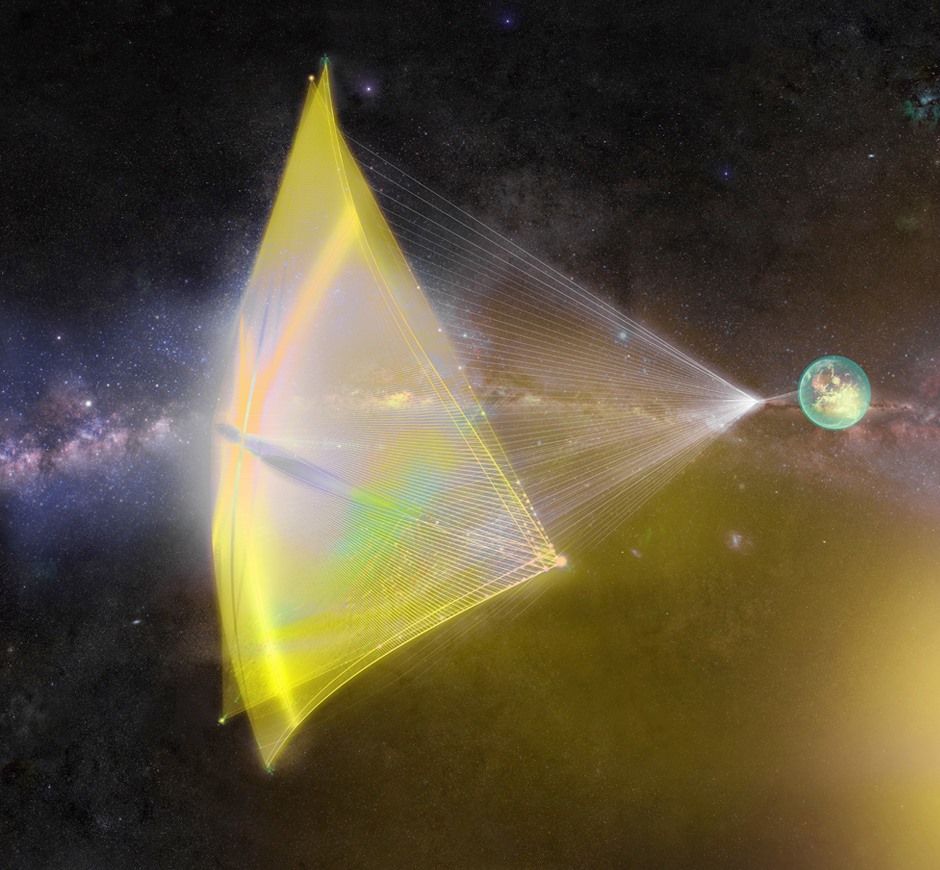
Just a day after unveiling his ambitious 10-year plan to put Facebook at the fore in the tech world, founder and CEO Mark Zuckerberg announced Wednesday that he is teaming up with astrophysicist Stephen Hawking and Russian billionaire Yuri Milner to explore stars light-years away from Earth to look for water.
In a project titled Breakthrough Starshot, Zuckerberg and crew intend to build tiny space probes called nanocrafts that can travel as fast as 20 percent of light speed, using laser beams transmitted from Earth. The probes' light weight will help save fuel and allow the fleet of nanocrafts to be sent into space for exploration. The nanocrafts will be able to travel at 100 million miles per hour, according to Zuckerberg. The overall project will cost $100 million.
"Our nearest star, Alpha Centauri, is 4.3 light-years or about 25 trillion miles away," Zuckerberg writes on his Facebook page. "Even with today's fastest spacecraft, it would take 30,000 years to get there. That's too long."
At top speed, the nanocrafts can reach the Alpha Centauri star system in 20 years. Zuckerberg hopes the nanocrafts will be able to discover planets with water in its liquid state because they are Goldilocks Zone planets—not too hot and not too cold, given the planet's distance from its nearest star, and thus able to sustain life.
Despite NASA's discovery of liquid water on Mars, Zuckerberg writes that "Mars has no water, so it would be difficult to ever live there."
Zuckerberg and Milner have long collaborated on other Breakthrough Initiatives to search for extraterrestrial life. In addition to Starshot, Breakthrough has a $100 million project to find life beyond Earth through artificial radio and optical signals and an upcoming $1 million competition to design a message about Earth, life and humanity.
"It's quite possible the closest planet that humans could actually live on is orbiting Alpha Centauri, and the only way to know that for sure is to visit close enough to photograph the planet, which is what this project will do," Zuckerberg writes.
Uncommon Knowledge
Newsweek is committed to challenging conventional wisdom and finding connections in the search for common ground.
Newsweek is committed to challenging conventional wisdom and finding connections in the search for common ground.
About the writer
Seung Lee is a San Francisco-based staff writer at Newsweek, who focuses on consumer technology. He has previously worked at the ... Read more
To read how Newsweek uses AI as a newsroom tool, Click here.





